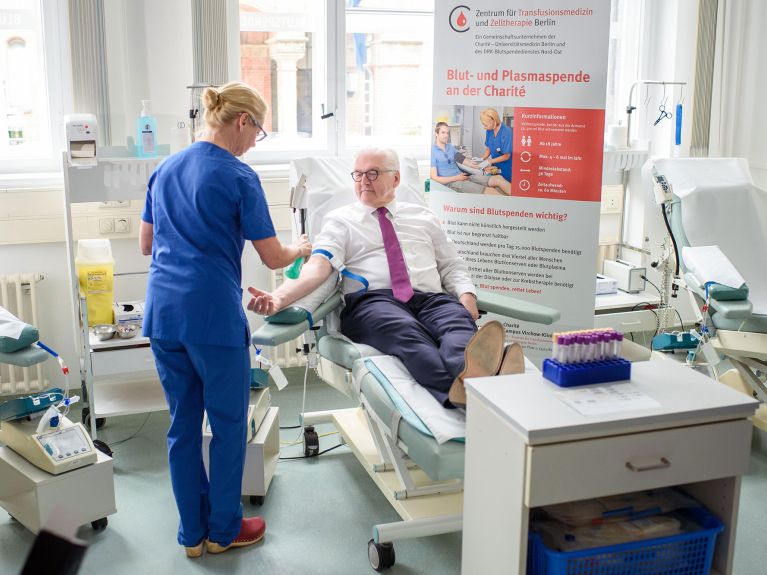Germany remains one of the most popular destinations for medical tourism in the countries of the former Soviet Union, Middle East and North Africa. Here, patients expect to receive better quality care than in their home country, as German hospitals employ highly qualified specialists and offer the latest methods of treating diseases.
If you need examination or treatment, you can visit German hospitals. The best clinics are presented on the Booking Health website. The Booking Health team can help you choose a hospital and a doctor based on your diagnosis or symptoms.
Why Medical Tourists Go to Germany
Every country in the world has doctors, hospitals and medicines. But the level of medicine differs significantly from country to country, and this is primarily due to the financial capacity.
With poor funding of the health care system, the quality of medical services leaves much to be desired. Therefore, many wealthy people receive treatment at their place of residence only for common and uncomplicated diseases. But when the need for a higher level of medical services arises, they go to Germany, for example, in such cases:
- The disease is serious and needs better care to improve outcomes
- The disease is rare and most physicians are not experienced in treating it
- High-tech procedures are needed
- Patient wants to treat disease in a safer or less traumatic way
- Diagnosis is unclear
- Previous treatment attempts have failed or the disease has recurred
What Diseases Are Treated in Germany
People most often go to Germany for the treatment of such diseases:
Cancer of any localization, any stage. The top rated cancer centers in Germany use advanced techniques of cancer therapy, including minimally invasive, robotic surgeries, the latest types of radiation therapy with low risk of post-radiation complications, innovative drugs and techniques – chemoembolization, ablation, immunotherapy, HIPEC and others. German oncologists achieve remarkable results in the treatment of cancer even at the advanced stage.
Heart conditions that require surgical or interventional treatment. Both open surgeries and minimally invasive surgeries are used for the treatment of diseases in Germany. For example, coronary bypass surgery in some cases can be performed endoscopically, with the help of a robotic surgeon. German cardiac centers use interventional procedures that are carried out through an incision in the leg or arm. With the help of this minimally invasive technique it is possible not only to install an artificial pacemaker or perform ablation of the arrhythmogenic zone, but also to implant or correct a heart valve, close defects in the interventricular and interatrial septum, treat hypertrophic cardiomyopathy. If your local hospital offers you open surgery, get a consultation at a German clinic: it may be possible to solve your problem with a safe and non-traumatic procedure.
Severe diseases of the nervous system. Neurology, neurosurgery and neurological rehabilitation are well developed in Germany. Brain surgery is performed for tumors, spinal injuries, spinal hernias, Parkinson’s disease, epilepsy and other pathologies. Minimally invasive techniques are widely used, such as endoscopic treatment of spinal hernias. In many cases, minimally invasive, safe deep brain stimulation can be used instead of standard traumatic surgery. Sparing endovascular procedures (from inside the blood vessels) are also used to treat nerve disorders, for example, to remove vascular malformations and aneurysms. Radiosurgical methods (Gamma Knife, CyberKnife) are also used.
Pathologies of the reproductive system. Women travel to Germany to treat uterine myoma, endometriosis, pelvic organ prolapse, urinary incontinence. Men visit German clinics to get rid of prostate adenoma, restore erection, treat varicocele and other pathologies. Reproductive medicine is also in demand in Germany: infertility is successfully treated here with the help of conservative methods, surgeries and assisted reproductive technologies (IVF).
Orthopedic diseases and sports medicine. In Germany, minimally invasive arthroscopic joint surgeries are performed through incisions 2-5 mm long (depending on the joint being operated on). Minimally invasive interventions are performed here not only on the knee and shoulder joints, but also on the hip, elbow and other joints. Also, people often travel to Germany for endoprosthetic surgeries on large joints, as this operation is performed here with excellent results.
If you want to go to Germany for treatment, you can find out the cost of medical services and make an appointment for convenient dates at https://bookinghealth.com. Please leave a request for a consultation with a medical tourism specialist.
We will help you to choose a clinic, organize your trip and provide assistance and support during the whole period of your stay abroad. The prices for medical services when making an appointment through Booking Health will be lower for you than if you apply directly to the clinic, due to the absence of additional charges for foreign patients.

